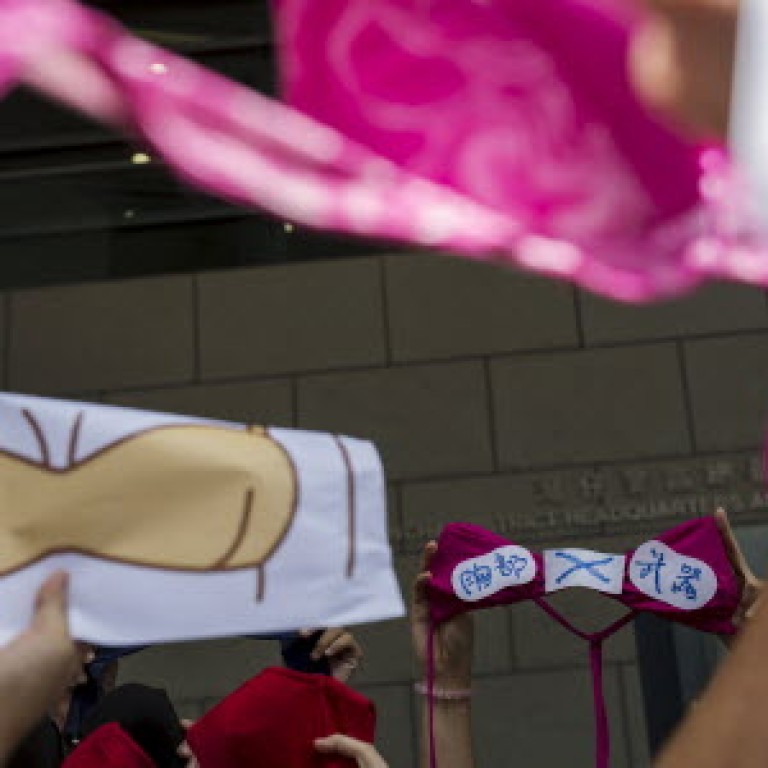
Virus of 'play the victim' is afflicting Hong Kong
Danny Chan says the breast-as-weapon incident has fed a trend of self-proclaimed victims, who need to take responsibility for their own lives
A sense of inverted logic in what being victimised means, appears to have taken hold of Hong Kong society. If being a self-described victim is no different from being a hero, then something has gone very wrong in this community.
When a female protester was found guilty of assaulting a police officer by using her breast as a "weapon" to justify her alleged molestation by the officer, many protested against her conviction, arguing that a breast couldn't possibly be a weapon.
That argument misses the point. The real issue is that the protester, by adopting the claim that she was a victim as her strategy, obscured the moral and legal compass by victimising others. This is the bizarre sense of reverse justice that is blossoming on the streets of Hong Kong.
I am certain that the mindset of victimhood will only lead to a dead end
The claim of victimisation is a social virus that we should all work to eradicate. Apart from its challenge to the rule of law of Hong Kong, the most vicious blow in this case is, by claiming she was the victim, the protester attempted to corrupt the established morals of our society. All the "victims" need to do is to drag others into the mud.
The intention was apparently to malign the police officer on duty and, through the claim of victimisation, create a target for the crowd's anger - in this case, the law enforcement system and its agent. Alleged victimhood is a way to invent an enemy.
By claiming to be a victim, demands for protection, rescue or shelter become part of the rhetoric that has become more and more popular these days in all walks of life in Hong Kong.
But the real question is: who victimised the plaintiff, and where are they?
Is claiming victimhood the only way to deal with the loss of a sense of superiority in Hong Kong, even as our neighbours raise their living standards? If we feel that inferior, and paranoid that others are stealing from us, shouldn't we work harder to find a way out of our economic and social stagnation?
Although I am not sure which path is best to reinvigorate our society, I am certain that the mindset of victimhood will only lead to a dead end.
After we've exhausted all the jokes, angry words and sarcastic remarks that this case has evoked, there'll be other examples. A child who fails in school can just play the role of a victim and take no responsibility for the results, while an adult who fails in life can claim to be the victim and, rather than search for solutions, all his setbacks in life can be ascribed to other people's wrongdoing. Life is always easy for victims.
For Hong Kong, however, this mentality of playing the victim will only drain it of the vitality it needs to continue improving.
